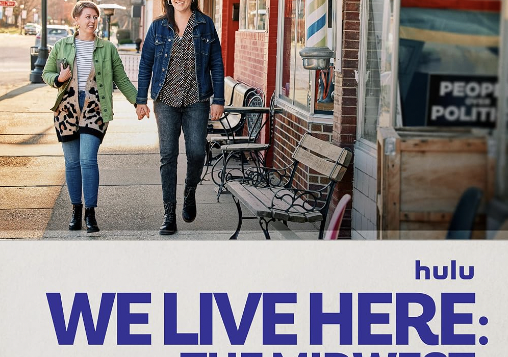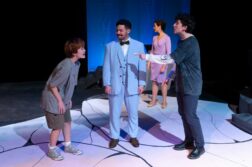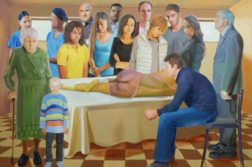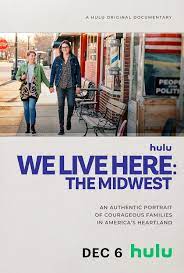 WE LIVE HERE: THE MIDWEST
WE LIVE HERE: THE MIDWEST
Directed by Melina Maerker
Produced by David Clayton Miller
Many of us live in cities with a robust queer community, even if we can remember times when it wasn’t, and during a time now when politicians are trying to make it difficult again.
We Live Here: The Midwest, a documentary by Melinda Maerker, profiles five queer families who have managed to make lives for themselves in traditionally conservative, rural places where they would seem to have a harder time fitting in: Iowa, Nebraska, Kansas, Ohio and Minnesota. Their stories reinforce what I believe is the classic argument for coming out: When someone gets to know ‘one of us,’ an LGBTQ+ person, it’s harder for them to hate any of us.
I grew up in Philadelphia, came out in Atlanta, and met Dan, my husband of 35 years, in San Francisco. I encountered no problems, except a little bullying in school when other kids figured out I was queer before I did.
I wasn’t sure what to expect when I went to a small Tennessee city to meet my in-laws for the first time, but Dan was out to them for a long time, and I never sensed the slightest bit of hostility from any of them.
Maerker, similarly, lets her subjects speak for themselves: Nia and Katie, from Iowa, met in second grade and went from being best friends to dating to raising five children, some of them adopted. Katie was a preacher in an evangelical, nondenominational church, until Nia transitioned and she lost her job. They’ve always lived in Des Moines and Katie wonders, “Do we stay or do we go? And if we go, where?” (I’m sure we could all offer suggestions.)
Another couple the documentary focuses on lives in Nebraska, where the Air Force moved another couple, Mario and Monte, from “liberal Colorado,” while raising Ariel, their child from a surrogate. Mario and Monte met at church in their youth and while they don’t seem pleased with Nebraska overall, a straight couple— their neighbors— are their closest friends.
The series also takes us to Kansas, where Courtney and Denise met in the city of Lawrence. They choose to live in the country, where women give off a “masculine vibe” so they’re not immediately assumed to be lesbians. But Marek, the son they raised, was bullied at school for having lesbian moms.
Another story which takes place in Oak Harbor, Ohio, Russ is a respected teacher despite, if not because of, being openly gay. Students are able to confide in him about their own sexuality and he moderates a support group where they can discuss it among themselves. Russ married his husband Mark in New York in 2012, before it was legal in Ohio.
Our visit to Minnesota begins with a brief introduction to state Rep. Heather Keeler, an Indigenous queer woman who fights for our side against homophobic issues. The segment focuses Jenn and Debb are transwomen in Minneapolis raising two daughters from Jenn’s previous marriage to a woman when she identified as a man. The girls still call Jenn ‘Dad.’ One of the daughters has the last word in the film: “Our world is changing, whether people like it or not.”
You could say We Live Here: The Midwest makes things look too easy, focusing on the positive side of these queer families’ lives and barely referencing the hardships they endured to get where they are. But on the other hand, seeing what they achieved, and are still actively working towards, is encouraging to many others who are still striving to reach that point or in a similar position.
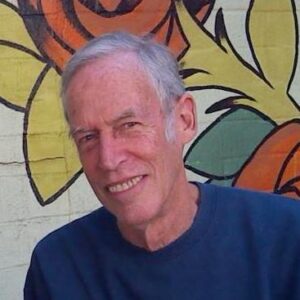 Steve Warren marks 50 years this spring of writing, mostly about entertainment, for the LGBTQ+ press.
Steve Warren marks 50 years this spring of writing, mostly about entertainment, for the LGBTQ+ press.


